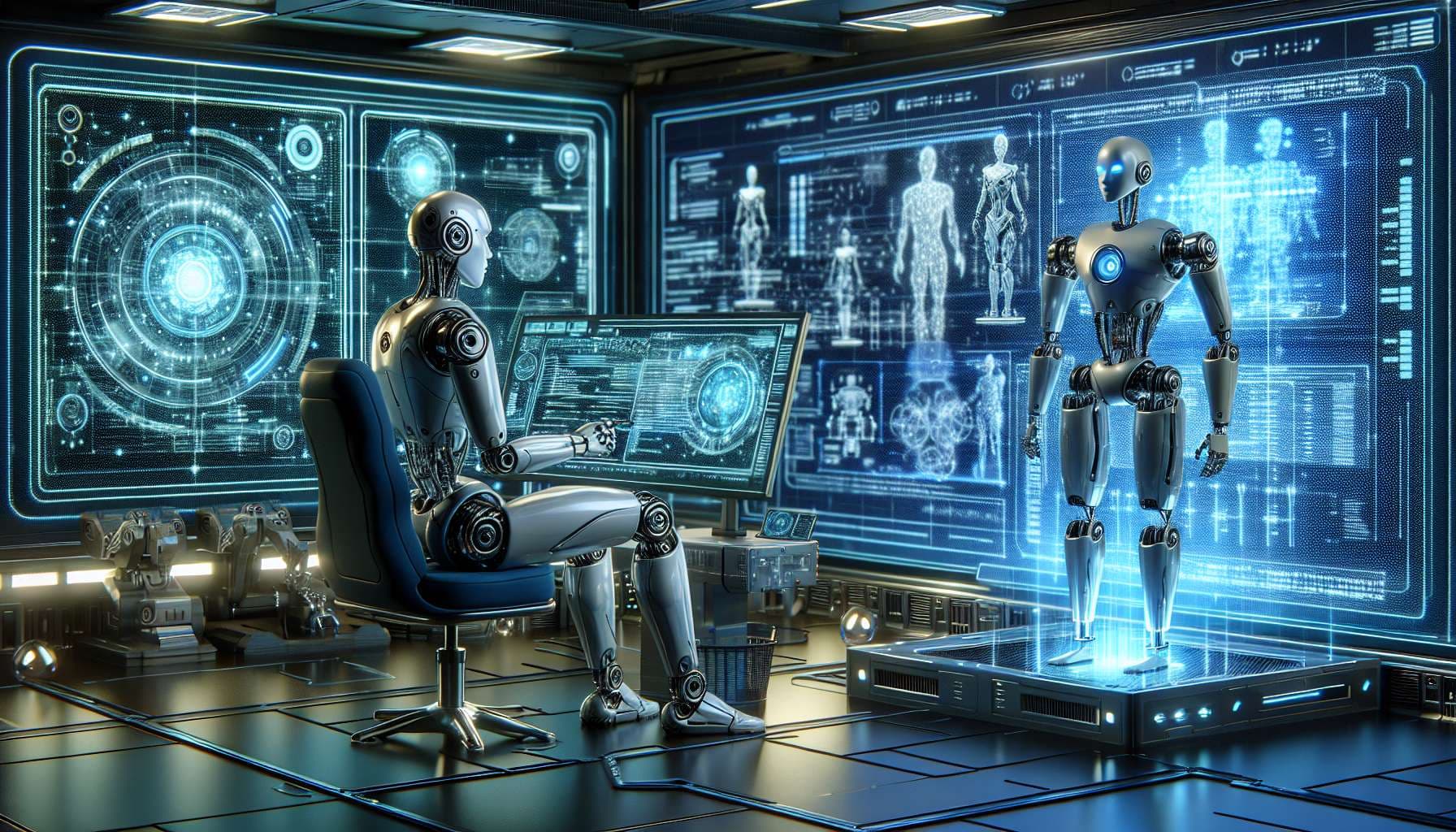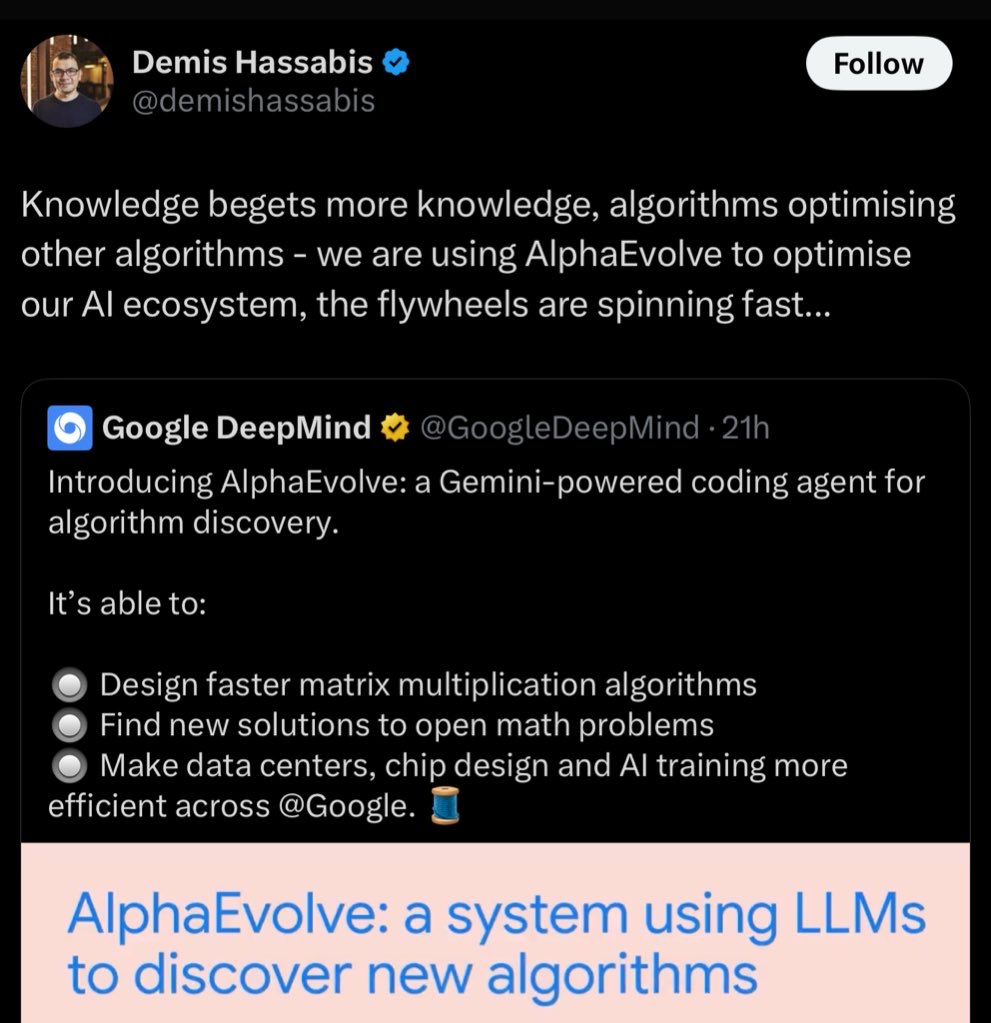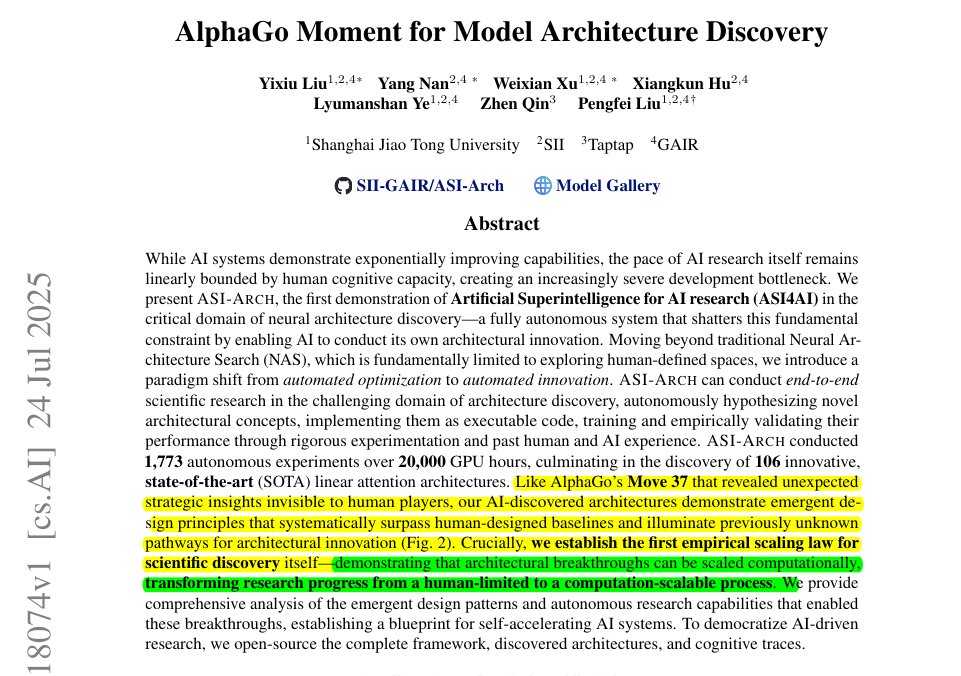
All these predictions are taken from Forbes/Rob Toews' "10 AI Predictions For 2025".
For the 2024 predictions you can find them here, and their resolution here.
You can find all the markets under the tag [2025 Forbes AI predictions].
Note that I will resolve to whatever Forbes/Rob Toews say in their resolution article for 2025's predictions, even if I or others disagree with his decision.
I might bet in this market, as I have no power over the resolution.
Description of this prediction from the article:
The concept of recursively self-improving AI has been a frequent touchpoint in AI circles going back decades.
Back in 1965, for instance, Alan Turing’s close collaborator I.J. Good wrote: “Let an ultraintelligent machine be defined as a machine that can far surpass all the intellectual activities of any man, however clever. Since the design of machines is one of these intellectual activities, an ultraintelligent machine could design even better machines; there would then unquestionably be an ‘intelligence explosion,’ and the intelligence of man would be left far behind.”
The idea of AI that can invent better AI is an intellectually fascinating concept. But, even today, it retains a whiff of science fiction.
However—while it is not yet widely appreciated—this concept is in fact starting to get more real. Researchers at the frontiers of AI science have begun to make tangible progress toward building AI systems that can themselves build better AI systems.
Next year, expect to see this vein of research burst into the mainstream.
To date, the most notable public example of research along these lines is Sakana’s AI Scientist. Published in August, the AI Scientist work represents a compelling proof of concept that AI systems can indeed carry out AI research entirely autonomously.
Sakana’s AI Scientist executes the entire lifecycle of artificial intelligence research itself: reading the existing literature, generating novel research ideas, designing experiments to test those ideas, carrying out those experiments, writing up a research paper to report its findings, and then conducting a process of peer review on its work. It does this entirely autonomously, with no human input. Some of the research papers that the AI Scientist produced are available online to read.
Rumors abound that OpenAI, Anthropic and other research labs are devoting resources to this idea of “automated AI researchers,” though nothing has yet been publicly acknowledged.
Get ready for much more discussion, progress and startup activity in this field in 2025 as it becomes more widely appreciated that automating AI research is in fact becoming a real possibility.
The most meaningful milestone, though, will be when a research paper written entirely by an AI agent is accepted into a top AI conference for the first time. (Because papers are blindly reviewed, conference reviewers won’t know that a paper was written by an AI until after it has been accepted.) Don’t be surprised to see research work produced by an AI get accepted at NeurIPS, CVPR or ICML next year. It will be a fascinating, controversial and historic moment for the field of AI.

